Sign in to your ScreenRant account
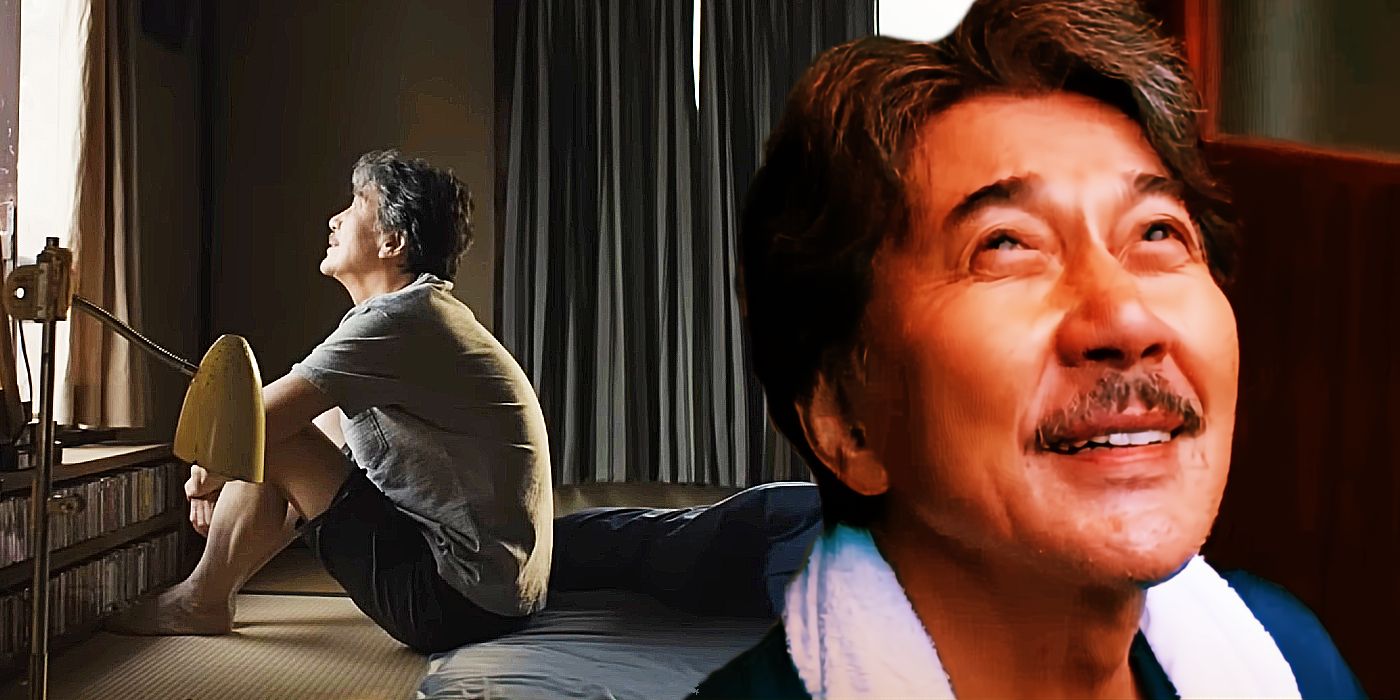 Custom Image by Zach Moser
Custom Image by Zach Moser
Perfect Days is a beautiful, bittersweet, but ultimately joyful movie with an ending that, when explained, reveals the humanity in kindness and relationships. Wim Wenders, director of the acclaimed music documentary Buena Vista Social Club, the Western drama Paris, Texas, and many more celebrated movies, directed Perfect Days in 2023. While Wenders may not be in the highest echelons of European directors, he's still an incredible and fascinating moviemaker, with dramas like Perfect Days to prove it.
The movie is set in Tokyo, Japan, and follows Hirayama (Kōji Yakusho), a public toilet cleaner in the Shibuya ward, an upscale neighborhood of the Japanese capital. Despite what may appear as a low station in life, Hirayama appears perfectly content. He takes his work seriously, but he doesn't let it consume him. In his free time, Hirayama enjoys music, reading, and gardening. Nothing really happens in Perfect Days and yet its story, tied up by a moving ending, shows more about the human condition than other films with higher stakes.
Hirayama Spends Two Days With His Neice Niko
Niko Has An Unexpected Visit With Her Uncle
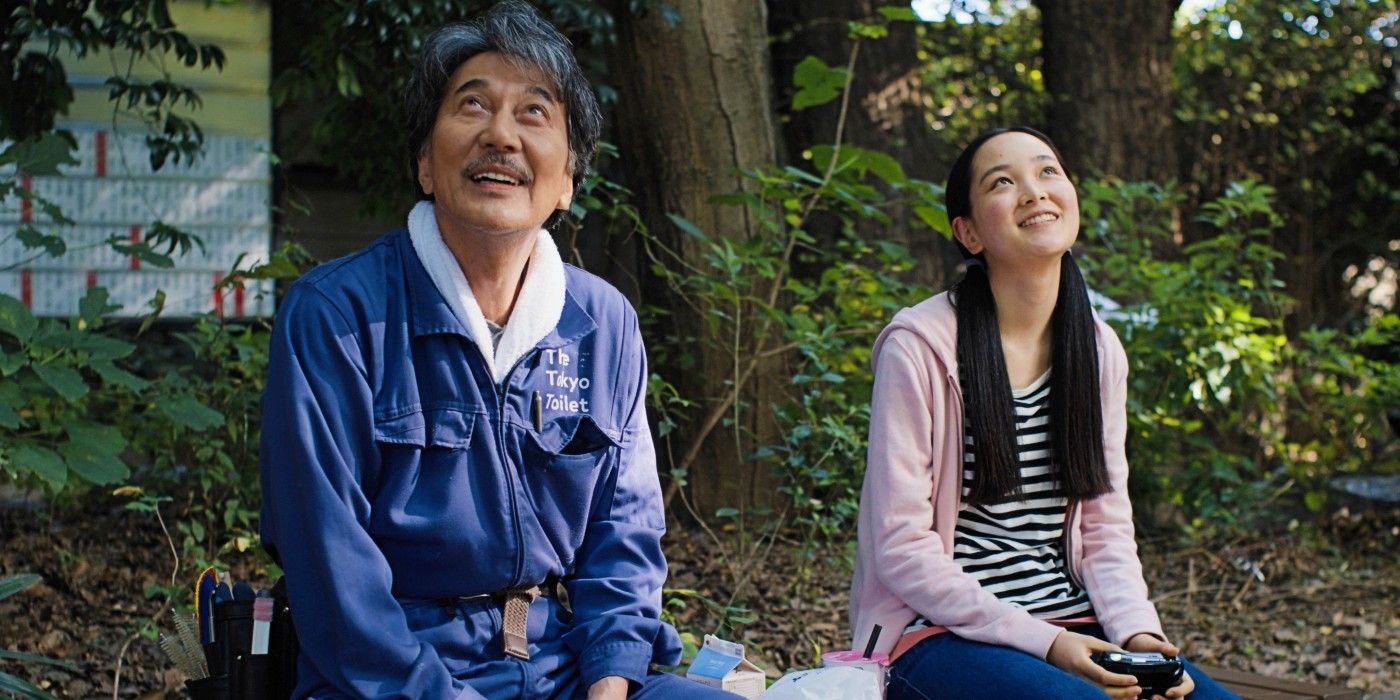
Towards the end of Perfect Days, Hirayama's niece Niko (Arisa Nakano) unexpectedly visits him. Hirayama did not know she was on her way but is happy to see her nonetheless, even after Niko reveals she ran away from her wealthy home and her mother, Keiko (Yumi Asō), Hirayama's estranged sister. Niko and Hirayama spend the next two days together, experiencing simple pleasures like riding bikes and photographing trees in the park.
Niko does not confront Hirayama about his job and inquire why he works for little money while his sister earns so much. They just enjoy life.
Niko does not realize that she needs to go home. Hirayama does not have a heart-to-heart with his niece about Keiko, nor does Niko confront Hirayama about his job and inquire why he works for little money while his sister earns so much. They just enjoy life. Hirayama offers Niko respite and, in return, he asks for nothing, because he is content with his life and understands that someone like Niko, even with her upper-class background, would benefit from some peaceful simplicity.
Keiko Arrives To Pick Up Niko And Tells Hirayama Their Father Is Dying
Keiko And Hirayama Have A Brief But Moving Embrace
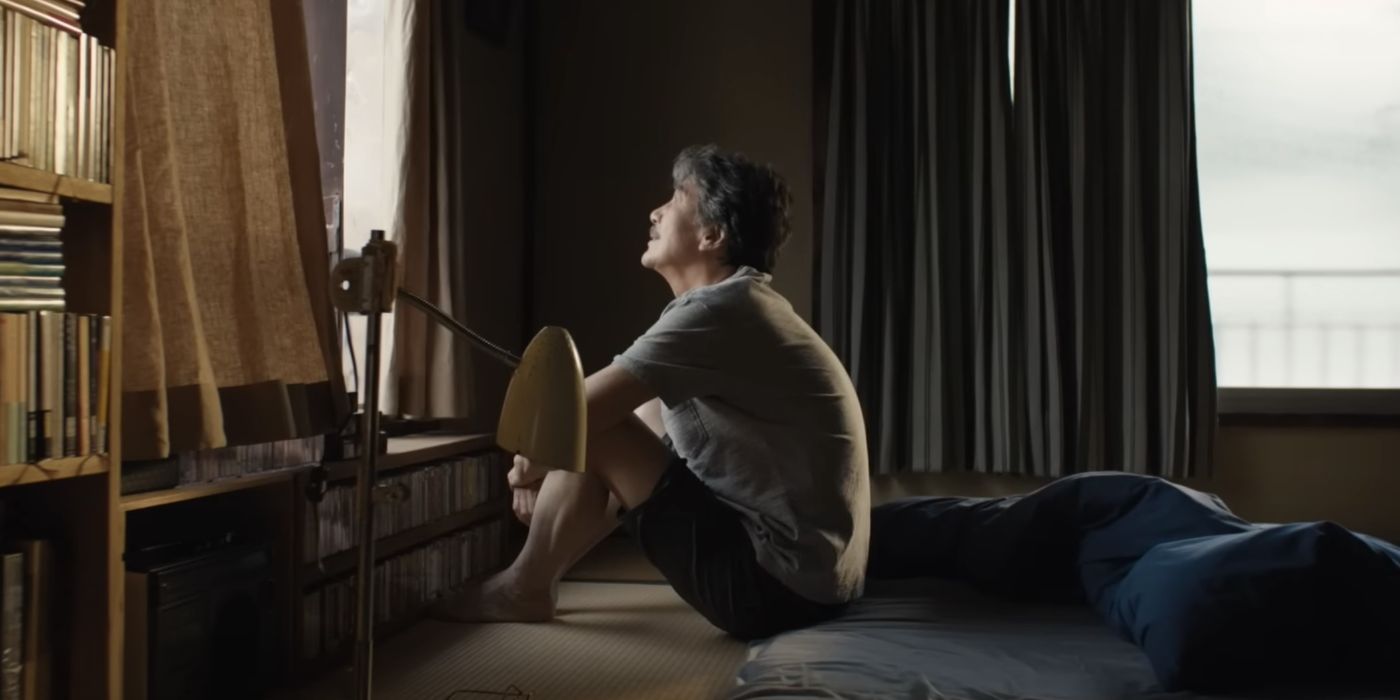
Niko can't stay with her uncle forever, and eventually, Keiko arrives to retrieve her daughter. It's a cold meeting between brother and sister, and there's the feeling that perhaps Keiko is looking down on Hirayama, particularly after she asks if a public lavatory cleaner is all he aspires to be. However, the lines between who is right or wrong become blurred when Keiko asks Hirayama if he ever intends to visit their dying father.
Perfect Days was nominated for Best International Feature Film at the 2024 Academy Awards.
It's Keiko who has clearly been in contact with their father and been with him through their father's sickness. So, while Hirayama does have pride and happiness, just like kind, good people in real life, he's not perfect. However, Hirayama is always trying to be a good person and when Keiko is about to leave, he embraces his sister and cries after she drives away. Hirayama may not have a strong relationship with his family, but at least he recognizes this failing and is working to mend at least one of his relationships.
Hirayama Walks In On The Restaurant Proprietor In The Arms Of Another Man
Hirayama Is Disappointed To Learn Someone He Likes May Have Another Man In Her Life
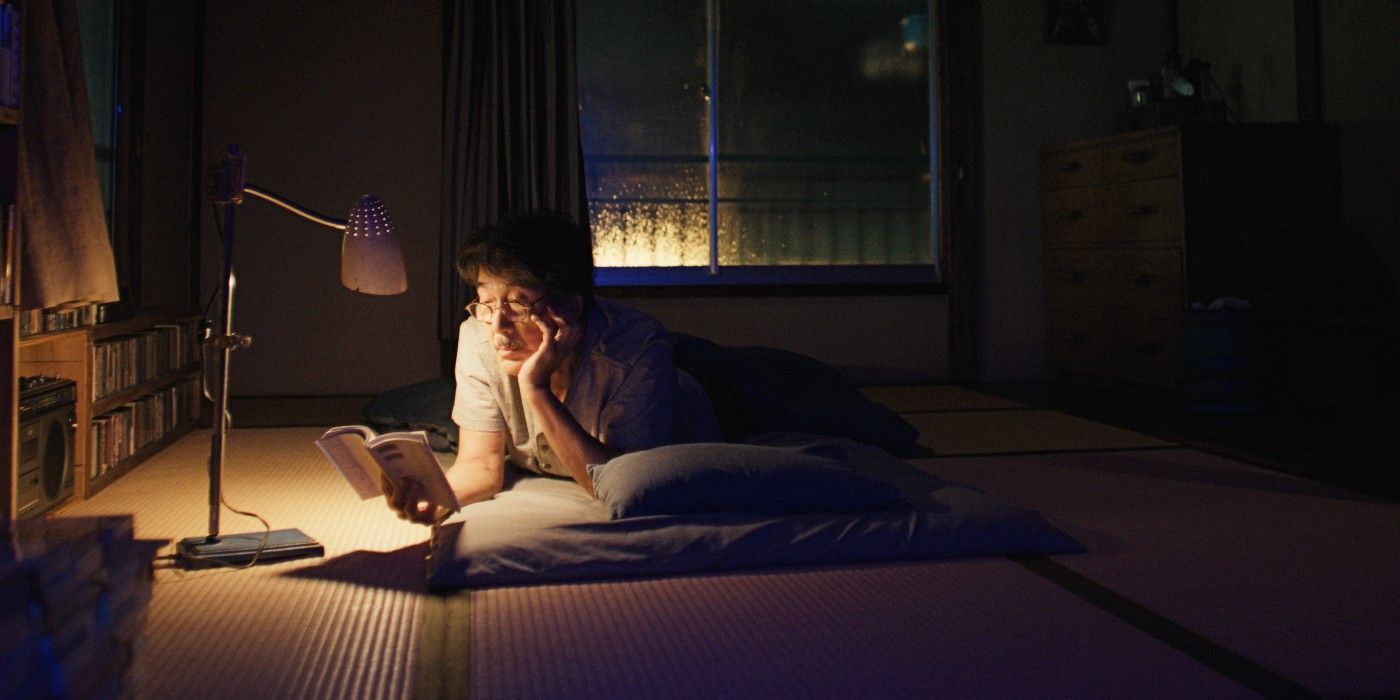
One of Hirayama's friends in Perfect Days, and one of his few relationships that approaches something romantic, is with "Mama" (Sayuri Ishikawa), the owner of a restaurant he frequently visits. Mama and Hirayama gossip most nights and while nothing ever romantic happens between them, it's maybe the only longing the content Hirayama shows. Towards the end of the film, Hariyama sees Mama hugging another man in the restaurant, and he leaves, dejected.
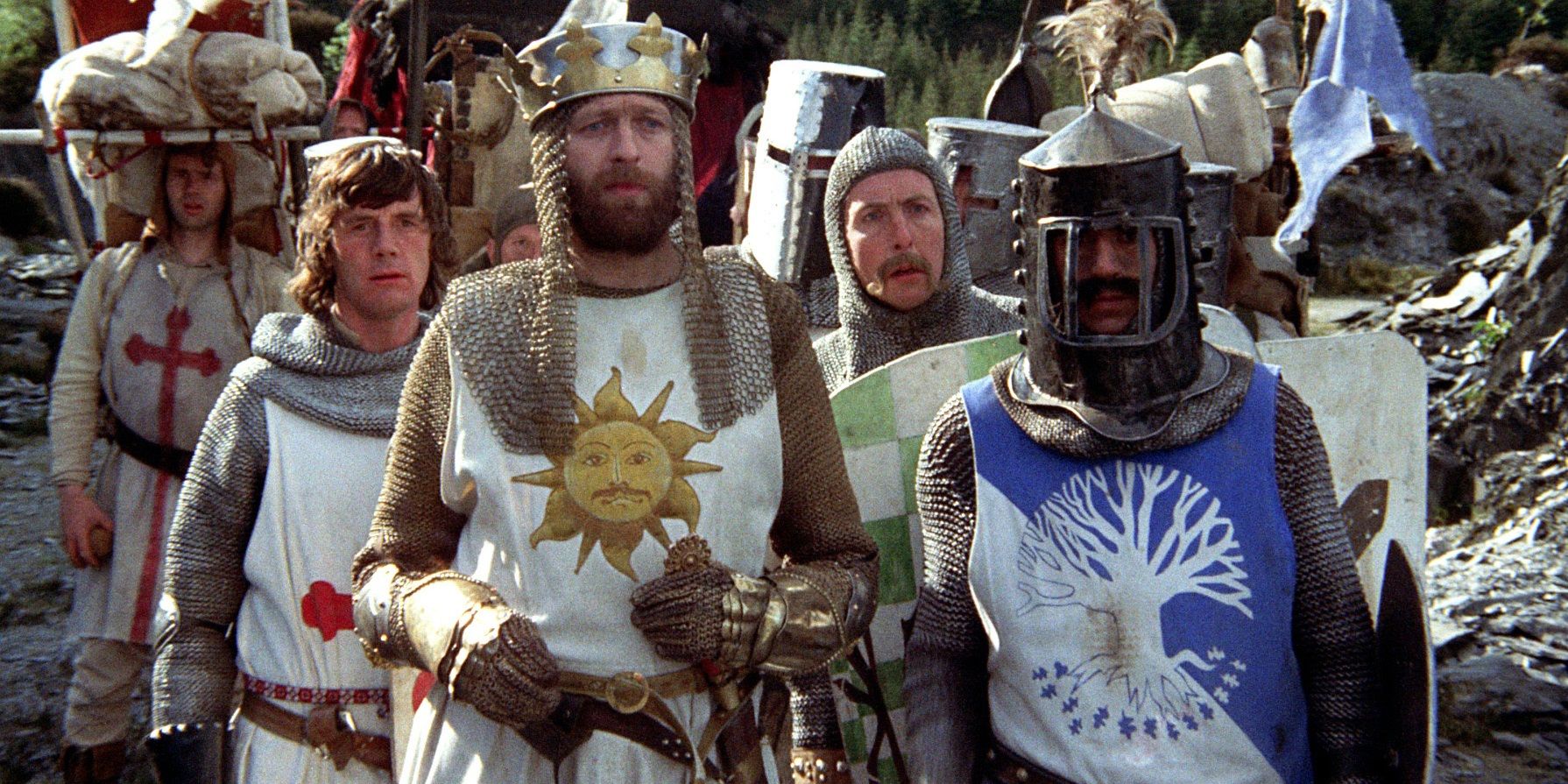
Related
I Can’t Stop Thinking That This Cult Japanese Horror Is Just A Serious Version Of A Monty Python Sketch
There’s an eerie similarity between Monty Python’s legendary Killer Joke sketch and Kiyoshi Kurosawa’s influential 1997 horror film Cure.
Hirayama smokes and drinks by a river bank, trying to drown his sorrows, only to be approached by the man from the restaurant who asks for a cigarette. The man reveals that he is the restaurant owner's ex-husband, and he was coming to say goodbye and make peace after learning he was diagnosed with cancer. He asks that Hirayama take care of her after he's gone, a promise Hirayama solemnly agrees to. Moments of happiness and relief tinged with sadness and loss are major themes of Perfect Days.
Kōji Yakusho On Hirayama's Connection To The Idea Of "Komorebi"
Komorebi Is The Concept Of Being Content With One's Life
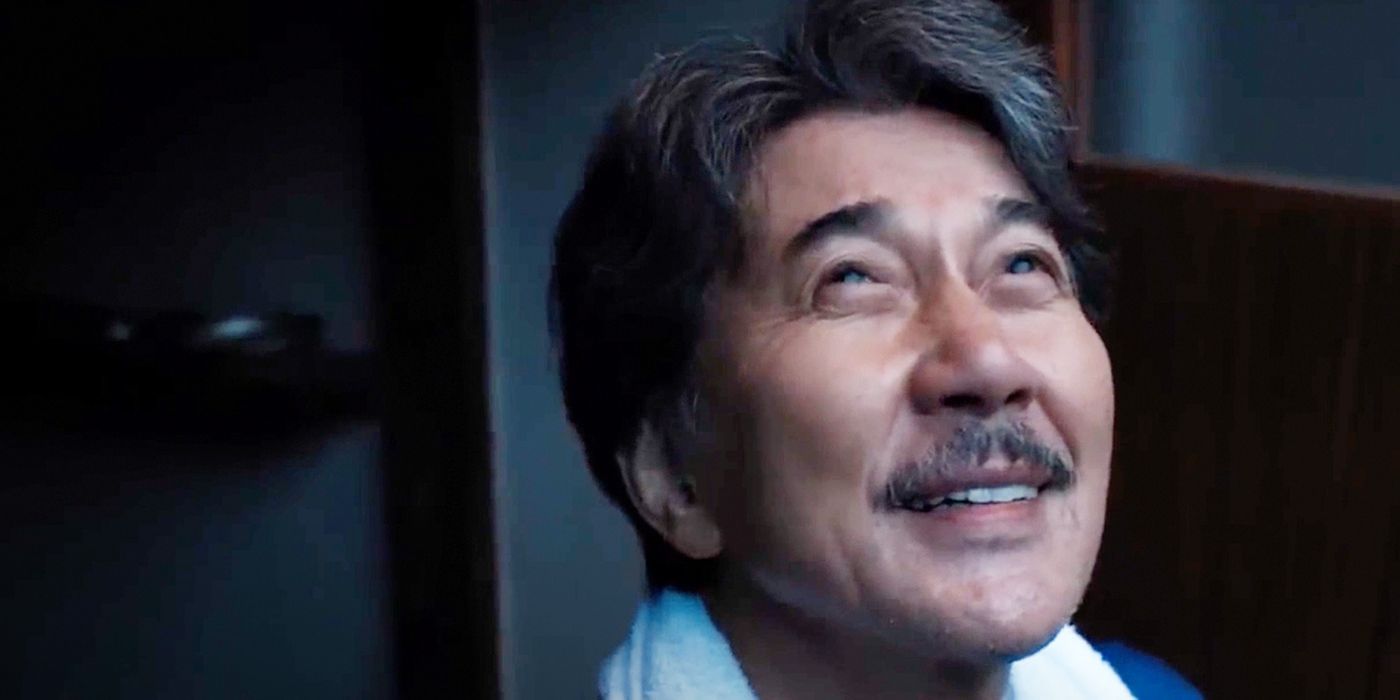
There is a concept in Japanese culture called "komorebi", which directly translates to "sunlight filtered through trees." It's a beautiful and nostalgic image — soft, yellow light pours poking down through the leaves of a forest, or a grove, or maybe a solitary tree in one's childhood yard. It could be easy, glowing morning light, mid-afternoon light whose harshness relents under the canopy, or the evening rays as the sun begins to set, giving one last moment of illumination to the world under the trees.

Related
Netflix’s 10 Best Live-Action Japanese Shows, Ranked
Netflix offers a diverse array of content from Japan, but its live-action TV series stand out as some of the platform's top offerings.
"Komorebi" connotes a contentment with oneself and with nature. Hirayama frequently looks upward in Perfect Days, enjoying the sun through the trees and the life he's made in its rays. It's a significant theme that Kōji Yakusho has spoken about, telling MovieWeb,
"Partway through shooting the film, Wim gave me a memo which explained a much deeper relationship between the komorebi and Hirayama. And so the moments where Hirayama would look up and smile and see this komorebi made a lot more sense. It wasn't just the komorebi, though. It was also just trees in general, or just sunlight in general. Really, all the gratitude that he felt for all of that was really important."
Hirayama and Komorebi were closely entwined for the movie, and their relationship was always a significant thread in Perfect Day s. In an interview with Deadline, Yakusho said,
"...the working title was Komorebi or Perfect Days. So, it had always been a huge presence."
Komorebi is a core concept of Perfect Days, symbolizing the idea of being happy with what's been given, one of Hirayama's defining characteristics. The fact that the slow-paced Perfect Days is not a saccharine or dull movie is a testament to Wenders' thoughtful direction and Yakusho's affecting acting.
The Real Meaning Of Perfect Days' Ending
Hirayama Experiences All Feelings And Emotions
Hirayama does not have a perfect life. He's a solitary man. His work is what some people may refer to as menial. Yet, through komorebi, Perfect Days shows how beautiful life can be no matter what it may look like to an outsider. However, komorebi and Perfect Days do not try to say that everything is great all the time. Komorebi is not some form of toxic positivity where everything must be great and enjoyed. Sadness is a vital part of both komorebi and the film.
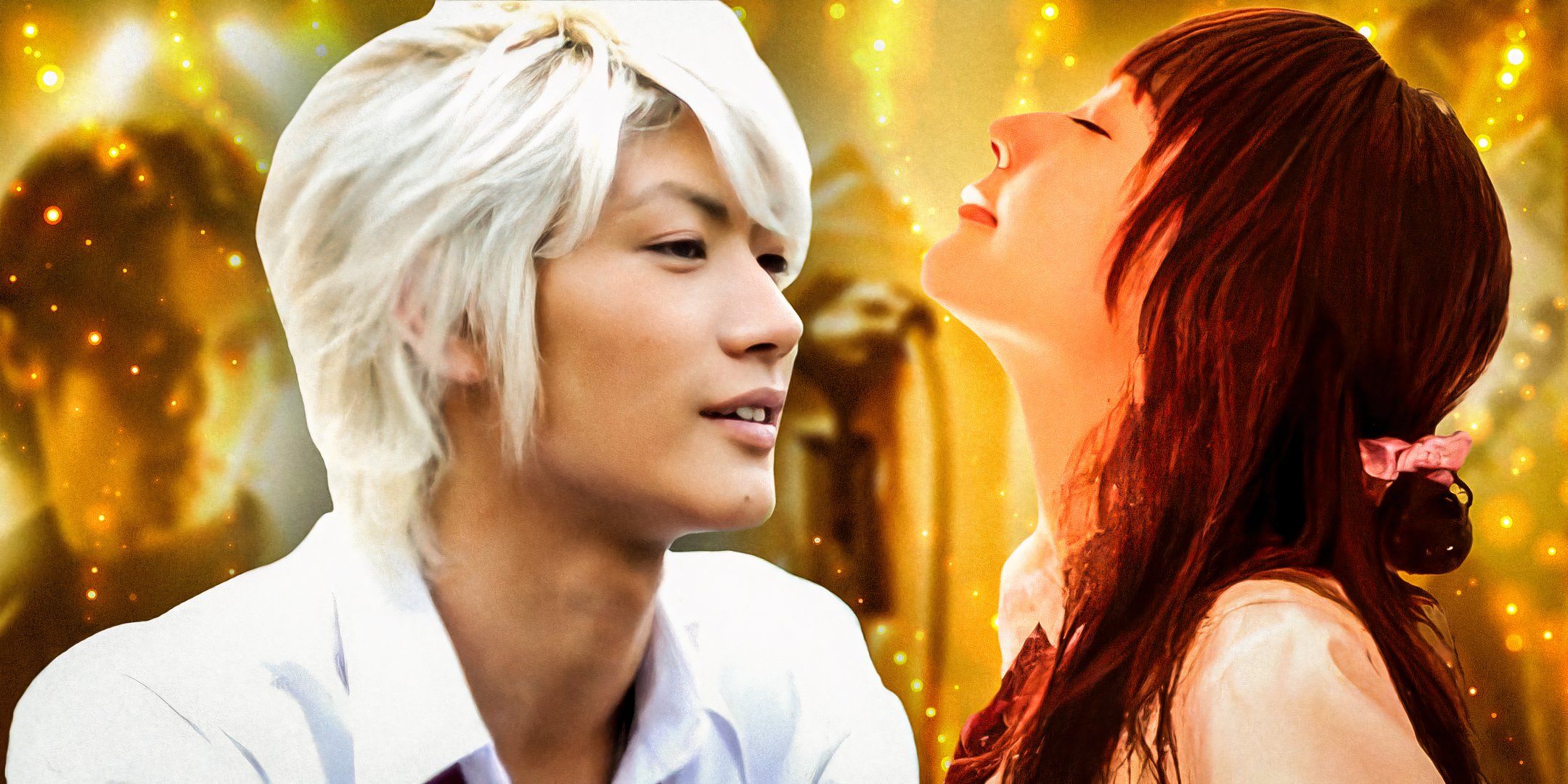
Related
10 Best Japanese Romance Movies
The increased worldwide popularity of Japanese cinema can be partially attributed to its unique and varied take on the romance genre in films.
At the very end of Perfect Days, Hirayama begins his work week just as he has many times before. He turns on his cassette player just as he has many times before. As he's driving, a wave of emotions crash over his face. Sadness, happiness, frustration, joy, and love all come across as he thinks of some unknowable thing. He's not a simpleton who only understands happiness nor is he sad about his loneliness. He's just a human, willing to accept the emotions that come with that, whenever they arrive.
How The Ending Makes Perfect Days Special
The Ending Is The Perfect Culmination Of The Movie
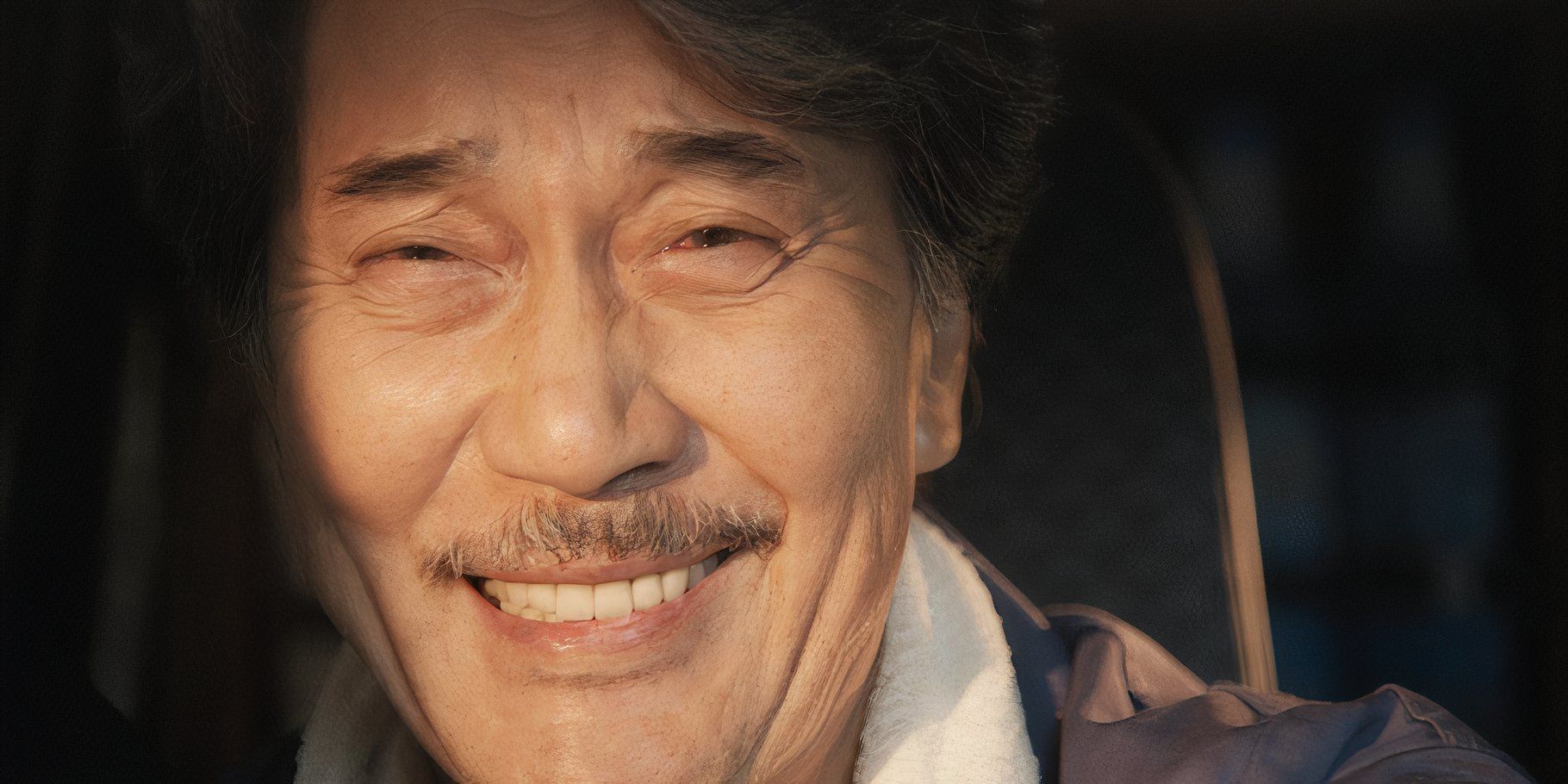
The movie doesn’t offer a finite conclusion or some kind of closure that might be necessary in another type of story. Instead, it offers the knowledge that life goes on, even after life-changing knowledge is imparted to someone, like Hirayama’s father dying, or his promise to take care of Mama. The ending is a visual reminder that there is an interplay between light and shadow, or good and bad, and that they are necessary for one another.
This is played out in the lights and shadows over Hirayama’s face as he drives. His tears and his laughter are an echo of those very shadows and light. Hirayama is like the living embodiment of Komorebi in that moment, and with his love for his “perfect days,” he would love that idea. That’s what makes the audience love the ending as well. It’s a simple scene, but an effective one, and one that makes Perfect Days stand out in its beauty and simplicity.
How The Perfect Days Ending Was Received
The Film Was Highly Praised By Critics & Fans
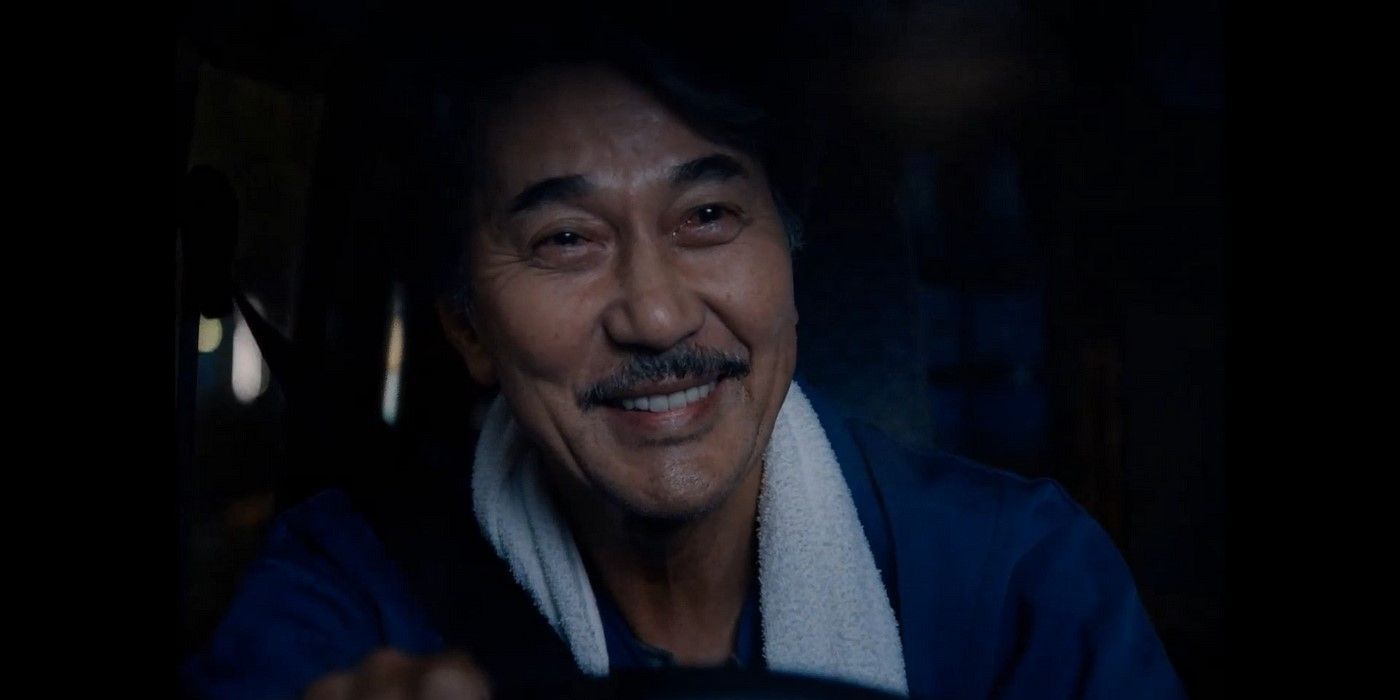
Both fans and critics loved Perfect Days. It has a Certified Fresh critical score of 96% and a very high audience score of 90% on the Popcornmeter. When explaining their love for the film, one audience reviewer on Rotten Tomatoes wrote, "What a wonderful, kind and sensitive film reminding us all that taking joy from the small things in our every day life makes you feel gratitude for being alive." For the pro critics, David Rooney of The Hollywood Reporter wrote:
"The real reward of Perfect Days , however, is the accumulation of tiny details, tenderly observed fragments of a life that on their own seem inconsequential. When pieced together, they create a poetic, deeply moving account of the unexpected peace, harmony and contentment that one man has worked hard and made difficult decisions to attain."
However, some viewers disagree with the ending's meaning. In a Reddit thread, Redditor PinkMoonLanding mentioned that some "top critics" said the film is about "living in the moment" or "finding beauty in the little things," but they disagree. "As soon as he’s reminded about how he has no children, his sister mogs him, his father hates him, and mortality is coming for him, he starts crying and spiraling out of control," the Redditor wrote. "To me, it's actually a very sad (albeit beautiful) film. I saw a man hanging on by a thread."
However, this created an interesting debate. Taking a different stance, Redditor briancly wrote, "He has a conscious removal from mainstream society, which really allows him to be at peace with himself. That isn’t to say he doesn’t find joy in human interaction, but only in kindred spirits." Based on the thread, there were plenty of people who saw both sides, making Perfect Days a lot more complex a movie than some might have expected.
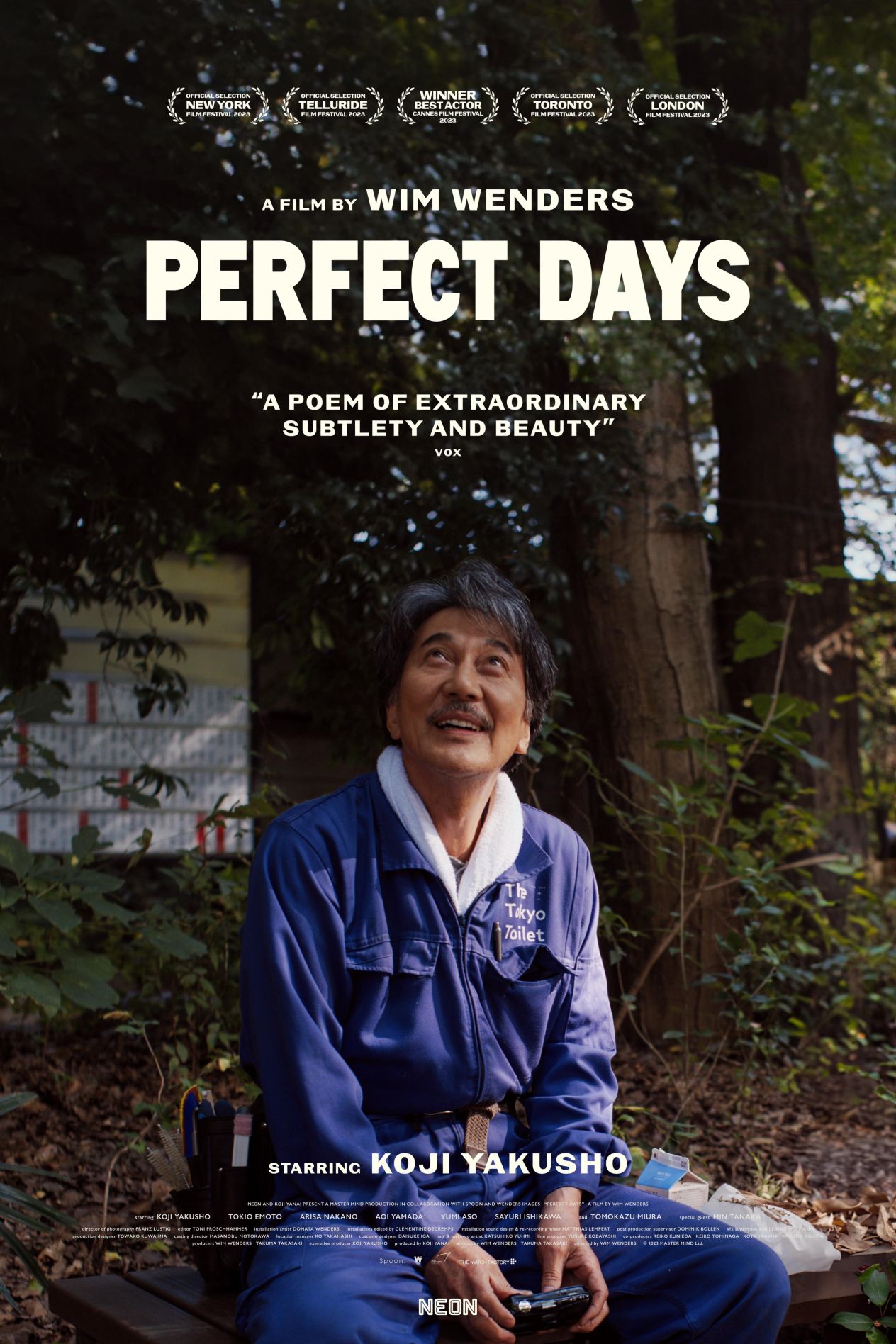
Perfect Days is a drama film that initially premiered in 2023 and was directed by Wim Wenders. A janitor in Tokyo, Hirayama's life seems to be all in place, with simple hobbies and a profound love of nature. Perfect Days examines the life of a man captivated by the beauty of the world.
Director Wim Wenders
Release Date December 22, 2023
Cast Kôji Yakusho , Tokio Emoto , Arisa Nakano , Aoi Yamada , Yumi Asô
Runtime 124 Minutes

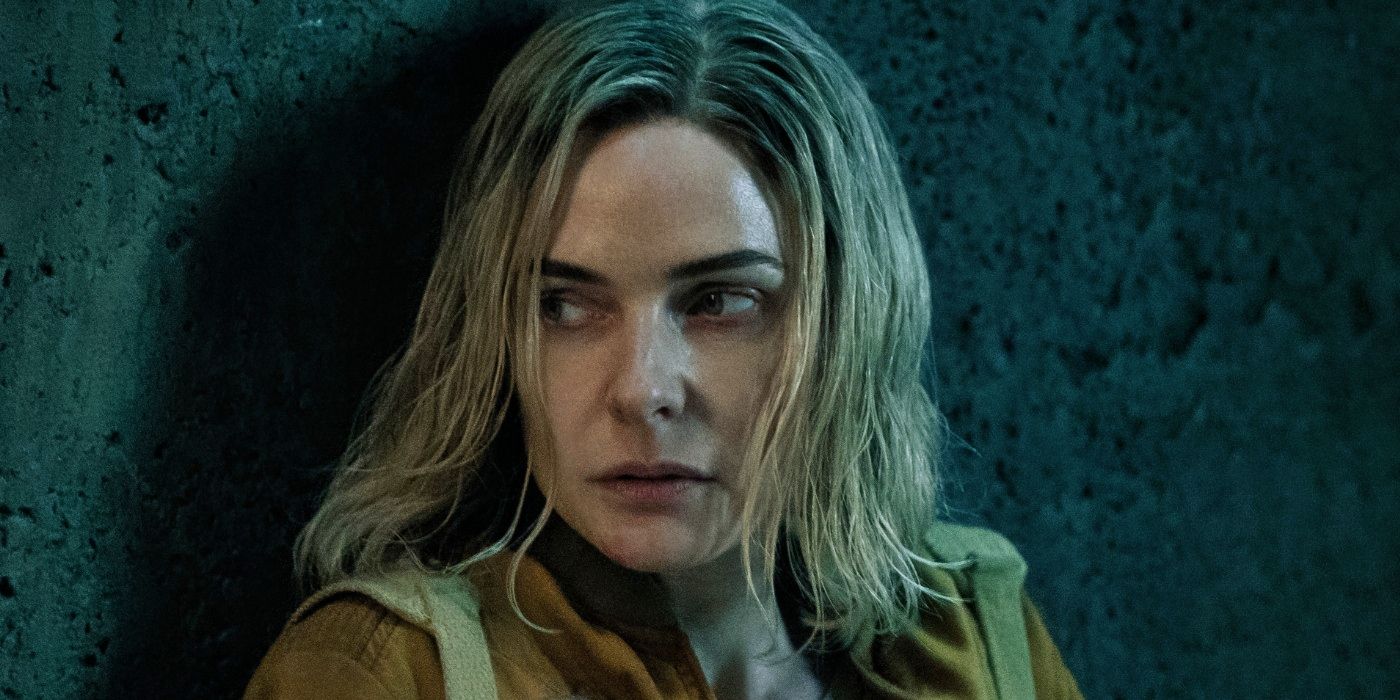
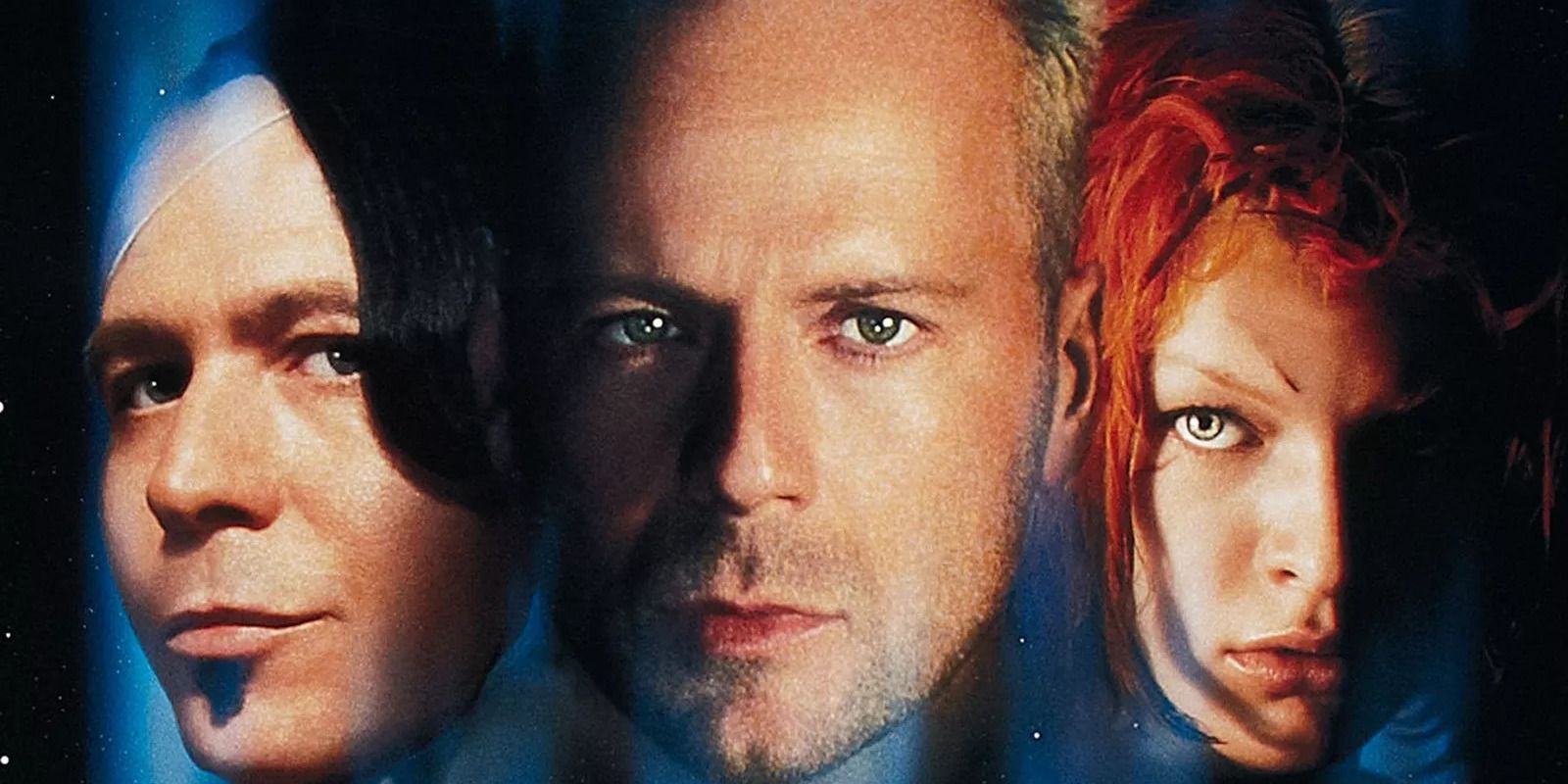
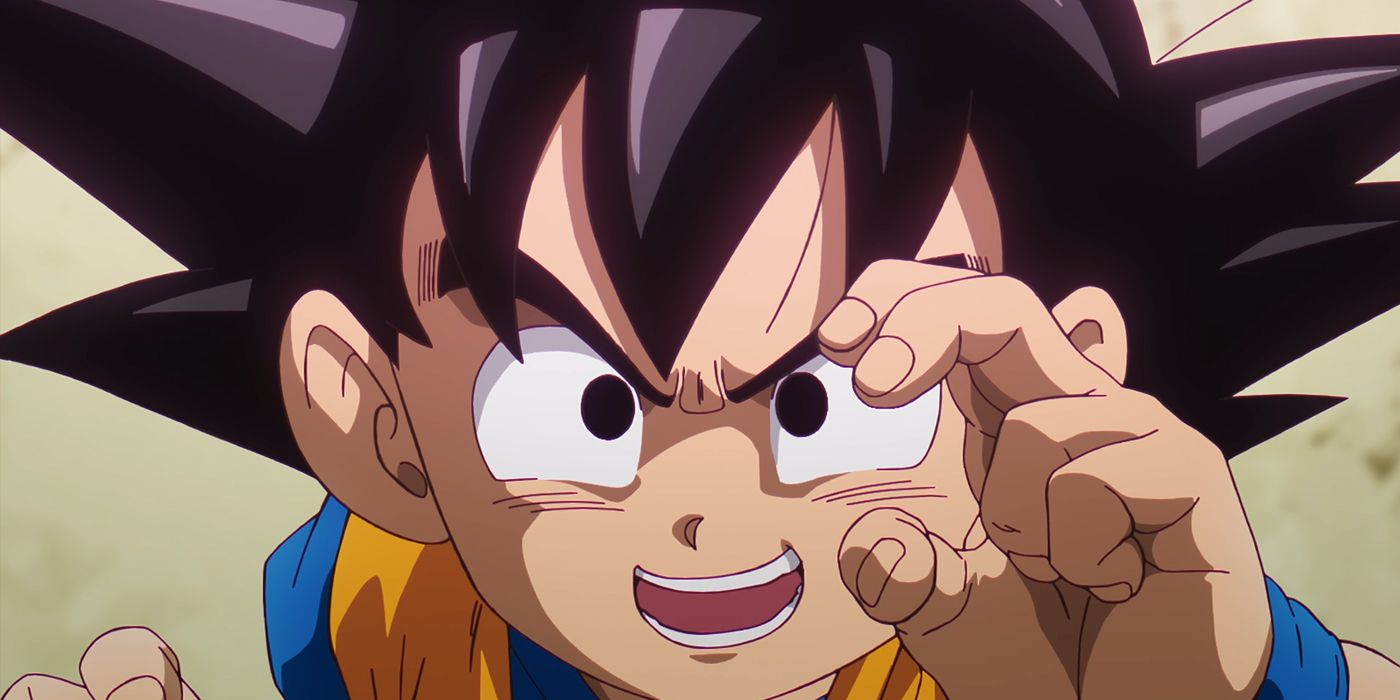
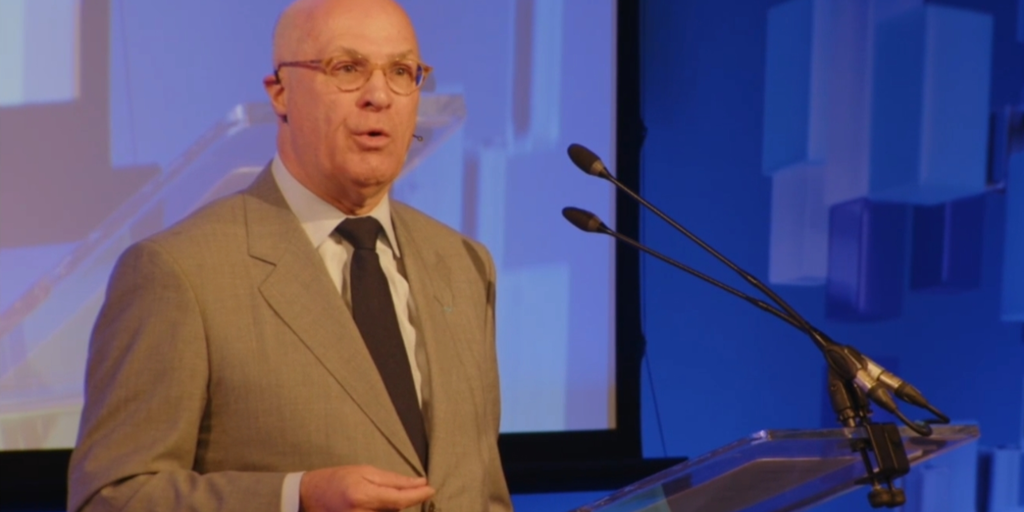




 English (US) ·
English (US) ·